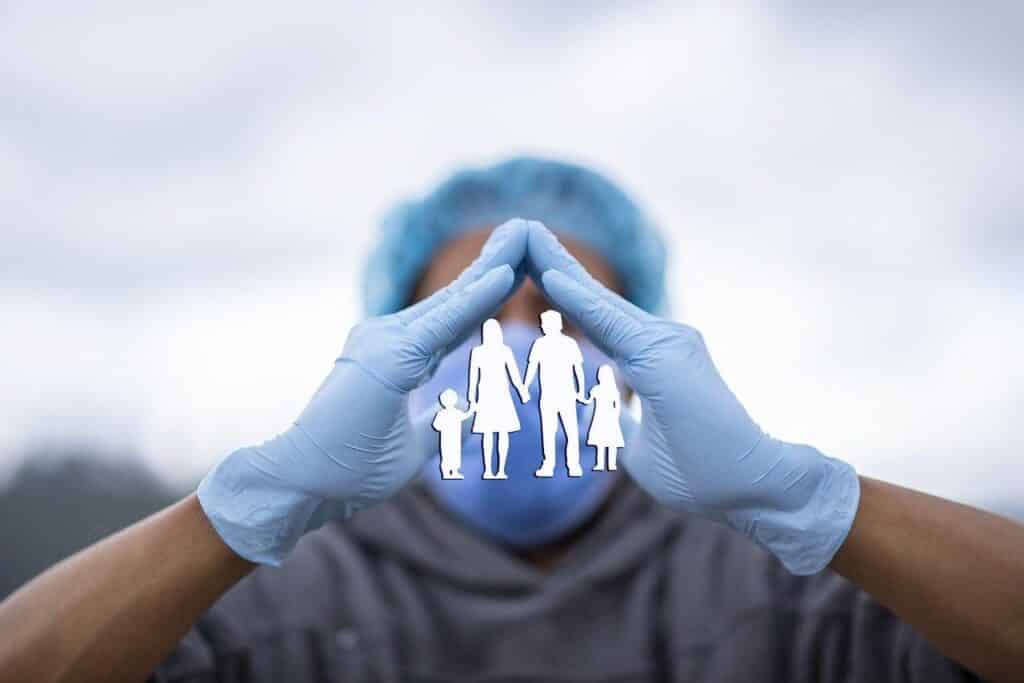Programs Centers for Medicaid and Medicare Services
Providing accessible, high-quality healthcare to its citizens is a core function of national public health systems like CMS in the United States.
The Centers for Medicare & Medicaid Services (CMS) is a federal agency under HHS responsible for administering major U.S. public health programs including Medicare, Medicaid, CHIP, and the Health Insurance Marketplace.
The CMS administers federal healthcare programs such as Medicare, Medicaid, and the Children’s Health Insurance Program (CHIP), working in partnership with state governments to ensure that these services effectively meet local needs.

CMS is responsible for collecting and analyzing data, producing research reports and eliminating instances of fraud and abuse within the U.S. healthcare system.
This federal agency aims to offer a healthcare system with excellent care, access and affordable health coverage.
Why is the Centers for Medicare and Medicaid Services (CMS) important
The Centers for Medicare and Medicaid Services (CMS) is a major U.S. Department of Health and Human Services agency. It is headquartered in Baltimore, Maryland and works with every state government to administer basic health services and insurance programs.
As of 2025, CMS programs provide healthcare coverage to more than 160 million Americans, encompassing a wide range of demographics, including the elderly, low-income families, pregnant women, and individuals with disabilities.
The beneficiaries of the CMS programs include infants, pregnant women, elderly citizens, low-income populations, and people with significant disabilities.
Major Programs under the Centers for Medicare and Medicaid Services (CMS)
Now that you know what exactly CMS is, let’s take a detailed look at some of the major healthcare programs run through the agency and how they can benefit you:
1 – Medicaid
Medicaid is a jointly funded federal-state program that provides health coverage to low-income individuals, including children, pregnant women, and people with disabilities. Each state operates its own Medicaid program within federal guidelines. The Center for Medicaid & CHIP Services (CMCS) within CMS oversees Medicaid and the Children’s Health Insurance Program (CHIP).
Medicaid consists of over 50 state- and territory-specific programs operating under broad federal CMS guidelines. Every US state or territory creates specific rules for its citizens and works under the supervision of CMS.
CMCS (Center for Medicaid and CHIP Services) is the CMS division that oversees Medicaid and CHIP policy and implementation nationwide.
Under this, federal funds are combined with state-sponsored funds to pay benefits for low-income citizens. CMS promotes preventive care and early treatment in Medicaid to reduce long-term healthcare costs and improve outcomes.
CMS is focused on promoting prevention and early detection tools to lower healthcare costs and promote wellness and good health.
2 – Affordable Care Act
The Affordable Care Act (ACA) expanded Medicaid eligibility to adults earning up to 138% of the federal poverty level and strengthened CHIP and preventive care coverage. It also required most Americans to have health insurance, a mandate later zeroed out at the federal level in 2019.
It also includes early diagnostics, screening and detection, and inoculation services. This initiative helps individuals whose income is too high for Medicaid but too low to afford full-price Marketplace coverage.
CMS supports states implementing the ACA’s Basic Health Program, which offers coverage for individuals with incomes up to 200% of the federal poverty level.
These programs are available for state residents who are ineligible for insurance coverage under the CHIP or Medicaid programs.
Under the Affordable Care Act, Medicaid expansion allows coverage of individuals with incomes up to 138% of the federal poverty level in participating states. The Basic Health Program, an option for states, can provide coverage for individuals with incomes up to 200% of the federal poverty level who would otherwise be eligible to purchase coverage through the Health Insurance Marketplace. A Basic Health Plan offers at least 10 essential benefits and exceeds the minimum economic value.
3 – Children’s Health Insurance Program (CHIP)
The Children’s Health Insurance Program (CHIP) was launched in 1998 and was formed as part of a national health insurance law.
Under this, the CMS matches the fund amount offered by the state government with federal funds to provide affordable health coverage for children from low-income households.
CHIP is designed for families whose income is too high for Medicaid but too low to afford private insurance.
CHIP eligibility varies by state, but it typically covers children in families with incomes too high to qualify for Medicaid but too low to afford private insurance. Most states now offer CHIP to families with incomes up to or above 200% of the federal poverty level, though eligibility criteria vary. This ensures that CHIP is accessible to the largest possible number of beneficiaries.
4 – Medicare
CMS fully administers the national Medicare program, which provides coverage for individuals age 65 and older, and certain younger people with disabilities. Medicare is a federal program providing health insurance primarily to individuals aged 65 and older and younger people with certain disabilities and conditions like End-Stage Renal Disease (ESRD).
This program supports public and private health insurance coverage with equal ease.
Some of the major Medicare programs that provide health insurance for elderly and disabled Americans include:
- Original Medicare includes Part A (hospital insurance) and Part B (medical insurance), and provides foundational coverage for eligible enrollees.
- Medicare Advantage (Part C) allows beneficiaries to receive all Medicare services through private plans, often with additional benefits
- Part D provides optional prescription drug coverage through private insurers approved by CMS
Conclusion
The Centers for Medicare & Medicaid Services (CMS) operate critical healthcare programs that provide coverage to millions of Americans, especially low-income, elderly, and disabled populations.
It is recommended to contact your state’s Medicaid or CHIP office or visit Medicare.gov or HealthCare.gov to explore program eligibility and enrollment options.
See Also
How to Get Medicare to Pay for Dental Implants